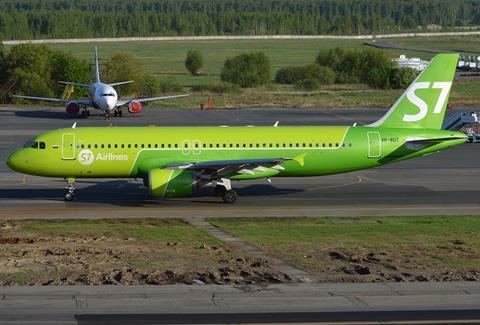Claims brought by lessors over the loss of aircraft leased to Russian airlines have been backed in a judgement on the complex case, which largely rejected the defences of insurance firms.
Irish lessor AerCap and several other leasing companies sought to recover losses under ‘all risk’ and ‘war risk’ insurance policies after dozens of aircraft – distributed among some 18 operators – were seized by the Russian government.
AerCap, which pursued the claim over 116 aircraft and 15 engines, says the judgement entitles it to recover some $1 billion from insurers by 2 July.
The case, heard by the commercial division of London’s High Court, centred on such legal arguments as whether the aircraft seizure amounted to a “physical loss” under all-risk policies – something the insurers had contested, because the aircraft were not destroyed.
“It is not the case that all airlines uniformly considered it in their commercial interests to retain all the aircraft and engines,” the ruling states, pointing out that several carriers – among them S7 Airlines, Ural Airlines, Red Wings, Utair and others – all considered that “there might be advantages in returning at least some aircraft”.
But it adds that the airlines which “were most committed” to returning their aircraft to lessors “clearly came under increased constraints, and pressure not to do so”.

The matter was effectively settled on 10 March 2022, after the Russian government implemented a resolution – designated 311 – enacting an export ban on goods including aircraft and engines.
If there had been any flexibility in the days leading up to this resolution, the ruling says, the “room for manoeuvre disappeared” after its issue.
“Under most regimes, but especially under an authoritarian regime such as Russia’s, obedience to an enactment such as [resolution] 311 can be expected,” it states. “It was to be expected that, from its enactment, airlines would comply with it, whether or not it represented what they would otherwise have wished to do.”
AerCap primarily claimed its aircraft were lost through ‘all-risk peril’, with ‘war-risk peril’ as an alternative. Other lessors in the case claimed the reverse.
The judgement finds the entry into force of resolution 311 is the “proximate cause” of the loss and amounts to a “restraint” or “detention” under ‘war-risk’ cover for government peril. Loss of the aircraft was not proximately caused by an ‘all-risk’ peril, it says.
Insurance firms also had a number of defences rejected including the application of exclusions and a claim that sanctions barred payment.
AerCap’s war-risk cover was limited to $1.2 billion. The lessor’s law firm, Herbert Smith Freehills Kramer, says the actual award totalled $1.035 billion.
The lessor’s claim, it adds, was “by far the largest” in the case, which also included such leasing companies as Dubai Aerospace Enterprise.
AerCap took a $2.7 billion charge against its earnings in 2022, when it wrote off or impaired aircraft involved in the Russian seizure. But it managed to recover $1.3 billion in 2023 and $195 million last year, which – combined with the latest judgement – brings its total pre-tax recovery to $2.5 billion.
“Claims against insurers and reinsurers of the Russian airlines’ insurance policies in respect of a number of these assets remain ongoing…and we intend to continue to vigorously pursue those claims,” says the lessor.
“However, the collection, timing and amount of any potential further recoveries in respect of those claims are uncertain.”


























